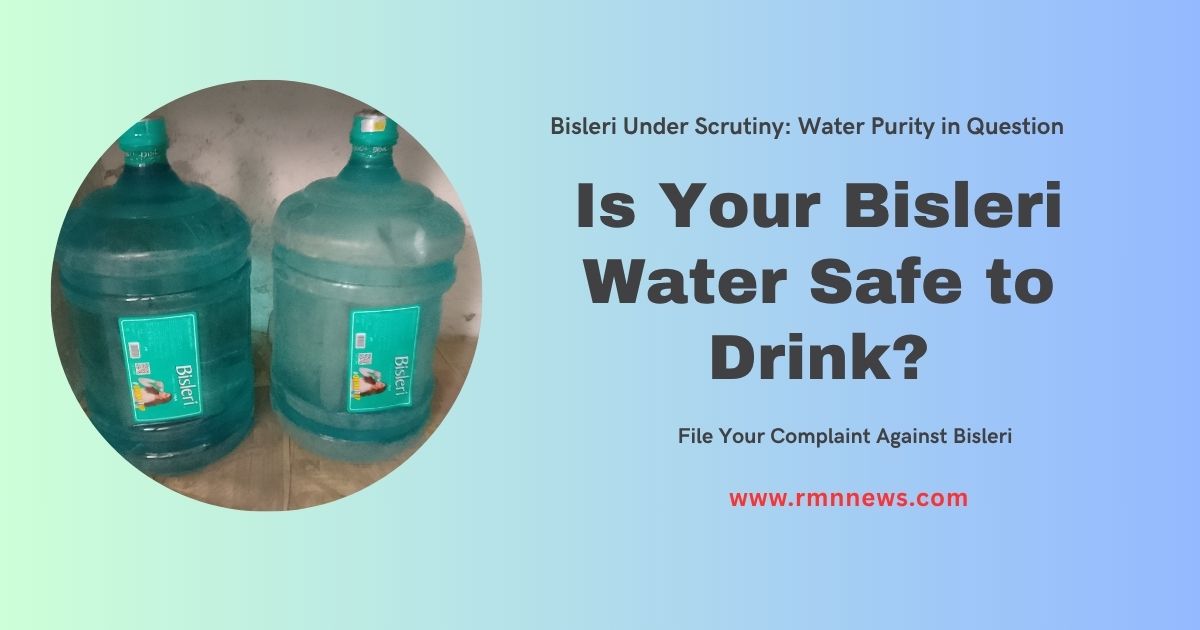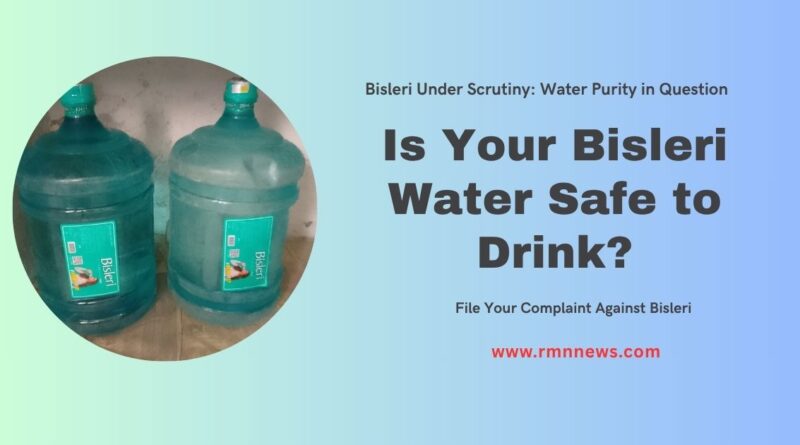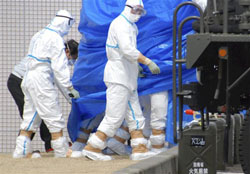Bisleri’s Reluctance to Reveal Water Purity Process Raises Consumer Health Concerns

Bisleri’s Reluctance to Reveal Water Purity Process Raises Consumer Health Concerns
This case underscores the urgent need for stronger government oversight and mandatory disclosure norms by bottled water companies.
By Rakesh Raman
Despite rising public concerns about the safety and purity of bottled water, leading Indian brand Bisleri continues to remain tight-lipped about its quality assurance and testing processes. The company has not publicly explained how it ensures that the water it supplies in bottles and jars is safe for human consumption.
On June 21, 2025, I published a detailed article on RMN News highlighting a case of contaminated Bisleri water supplied in a 20-liter jar, which led to serious apprehensions about the company’s production and distribution practices. The contaminated water jar raised serious health risks, especially as many consumers rely on bottled water daily.
Following the article, I received a call from a Bisleri representative who acknowledged my concerns and assured that the issue would be discussed with senior management. The core request was simple: Bisleri should transparently publish its water testing and purification protocols on its website for public knowledge.
[ Also Read: Bisleri Still Silent on Water Purity Transparency Despite Serious Health Concerns ]
However, even after more than two weeks, Bisleri has not taken any visible action, nor has the company provided a substantive response. Its website continues to lack any detailed information that would allow consumers to independently verify the safety of the water they are drinking.
This silence from Bisleri — a company that claims to be India’s most trusted bottled water brand — reflects corporate negligence and disregard for consumer health rights. In the absence of transparency, consumers are left to depend on blind faith rather than factual information when purchasing bottled water.
This case underscores the urgent need for stronger government oversight and mandatory disclosure norms by bottled water companies. The Food Safety and Standards Authority of India (FSSAI) and the Bureau of Indian Standards (BIS) must intervene to ensure that all water bottlers clearly publish quality test results and water safety protocols on their websites.
Until such regulations are enforced or companies like Bisleri voluntarily act, consumers remain vulnerable to possible health hazards hidden behind glossy brand marketing.
🧾 More updates will be published as the case develops.
By Rakesh Raman, who is a national award-winning journalist and social activist. He is the founder of a humanitarian organization RMN Foundation which is working in diverse areas to help the disadvantaged and distressed people in the society.
💛 Support Independent Journalism
If you find RMN News useful, please consider supporting us.




